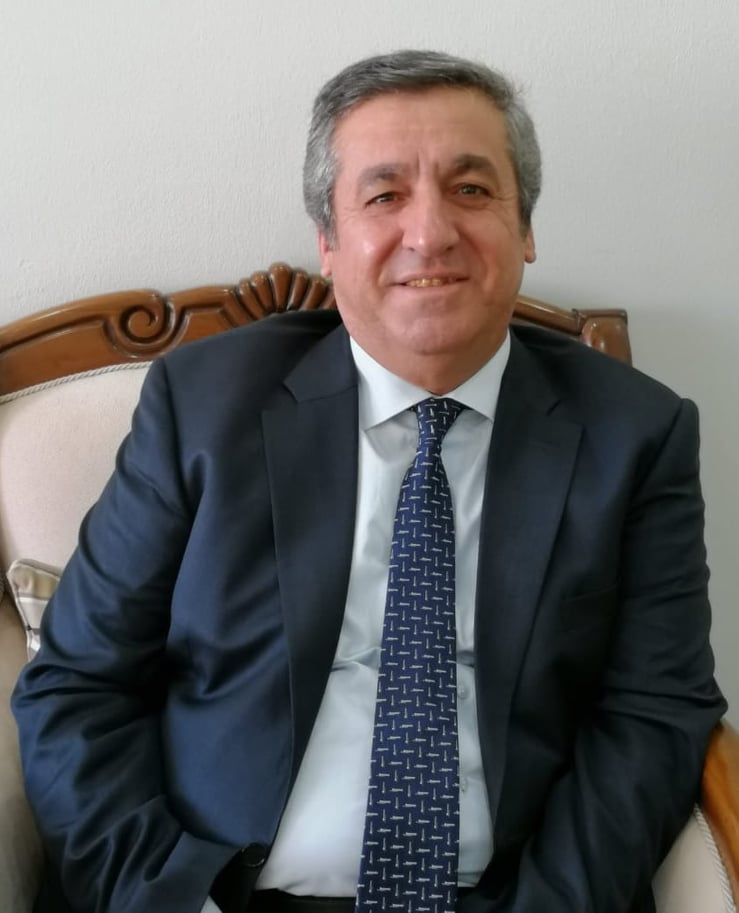
The Mind is Like a Field
A cultivated mind, like a well-tended field, gives strength and vitality to life's energy. An uncultivated mind, however, cripples and paralyzes that same energy.
"Whatever a man sows, that he will also reap" (Galatians 6:7).
This ancient and sacred saying is one of the most concise expressions of human nature. The human mind is like an untilled field—if left unattended, weeds, thorns, and harmful plants will sprout on their own.
In Syriac, such an uncultivated, neglected field is called "ḥaqlā d-edyo" (ܚܰܩܠܐ ܕܥܶܕܝܳܐ). On the other hand, a field that has been labored upon, watered, regularly sown, and cared for is called "ḥaqlā d-šeqyo" (ܚܰܩܠܐ ܕܫܶܩܝܳܐ).
This metaphor applies perfectly to the human mind. If left unchecked and uneducated, the thoughts that arise spontaneously tend to be chaotic, scattered, and unproductive. Worries, prejudices, false beliefs, and negative emotions overtake our minds like an untended field. A mind not cultivated with knowledge and awareness can easily be manipulated, filled with misleading thoughts, and lead to a loss of inner peace.
In contrast, a cultivated mind is like a well-tended, fertile field. A mind nourished by reading, reflection, questioning, and conscious learning grows in wisdom and understanding. As St. Ephrem (306–373) once said: "The seed of wisdom only sprouts in a mind that has been cleared and watered."
Ultimately, it is in our hands to make our minds a fertile "ḥaqlā d-šeqyo." A neglected mind, over time, slips from our control and becomes overgrown with thorns and weeds like a "ḥaqlā d-edyo." But a mind consciously cultivated becomes a source of wisdom and serenity.
The question we must ask is:
What kind of field do we choose to make of our minds amid life's complexities? What mental efforts do we undertake to transcend ourselves and transform pain into compassion?
Life presents us with many trials. Suffering, loss, and disappointment are part of being human. Yet how these experiences shape us depends entirely on our choices. Syriac wisdom teaches us not to see pain as an enemy but to discover the lessons hidden within it. For within pain lies a seed—and what we water it with determines the fruit it bears. If we nurture it with anger and vengeance, it becomes a thorny wasteland where we lose ourselves. But if we cultivate it with patience, understanding, and compassion, we grow a tree that offers shade to ourselves and others.
A person reveals their true self in how they carry their pain. Anger consumes everything like a destructive fire, while compassion heals like a soothing balm. As the Syriac sages said: "Forgiveness breaks the chains of the soul." Without breaking our own inner chains, we cannot offer freedom to others. True healing is not denying what happened but seeing the truth within it, rebuilding ourselves, and forging strong character.
Pain’s greatest illusion is the belief that we are its prisoners. Yet deep within the soul, a light continues to burn—a lamp that illuminates the path of truth-seekers. In Syriac thought, this is called "nūhrā d-ḥayē" (ܢܽܘܼܗܪܳܐ ܕܚܰܝ̈ܶܐ), the "Light of Life." No matter how deep the darkness, a person can awaken this inner light.
Those who fill their minds with beauty, wisdom, and love do not allow pain to rule them. As St. Ephrem wrote in his hymns: "In the heart filled with love lies a harbor for the whole world." If a person discovers that harbor within, no storm can harm them.
Whoever transcends their own pain becomes a light for others. For every hardship they endure transforms into an experience that can guide someone else. In Syriac wisdom, one of the paths to truth is inner maturation—because truth is not merely learned from outside; sometimes, the greatest lessons sprout silently in the soul.
To transcend oneself is not to defeat those who hurt us but to transform pain into compassion. For true victory lies in the freedom of the soul.
Yusuf Beğtaş
You can also send us an email to karyohliso@gmail.com
Leave a Comment